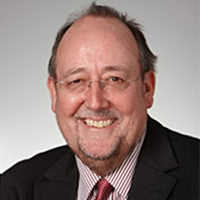About
Professor Steven Kelly obtained his BSc (hons) in Genetics from Swansea University in 1978 and a PhD in yeast genetics in 1982 also from Swansea University. In 2011 he received his DSc from Swansea University and also worked as Lecturer/Senior Lecturer in the Krebs Institute in Sheffield University (1983-98) and as lead professor for molecular biology at Aberystwyth University (1998-2004) where he established the Wolfson Laboratory for Cytochrome P450 Biodiversity. In 2004 he returned to Swansea University’s new Medical School as lead for research.
Professor Kelly is a Fellow of the Institute of Welsh Affairs, Royal Society of Biology, Royal Society of Chemistry and the Learned Society of Wales. In 2016 he was awarded the George Schroepfer Medal from the American Oil Chemist’s Society for distinguished research on lipids (sterols). This is the foremost honour for studies on sterols. In 2014 he was First Distinguished Visiting Research Professor at the University of Tennessee in Memphis and in that year the European Regional Development Fund project BEACON with Aberystwyth and Bangor Universities won the 2014 RegioStars prize among the EU regional projects.
He is author of more than 300 publications and has been on the Advisory Board of several international symposia. He held scientific conferences in Swansea University including the International Yeast Lipid Conference (2005), International Symposium on Cytochrome P450 Biodiversity and Biotechnology (2006), British Yeast Group (2016) and 30th Anniversary Conference for the EPSRC UK National Mass Spectrometry Facility (2017).
Professor Kelly is Deputy-Director of the BEACON Centre of Excellence in Biorefinery, Director of the EPSRC UK National Mass Spectrometry Facility (2016-18) and besides EU and RCUK funding (BBSRC, EPSRC, MRC, NERC) has held National Institutes of Health (USA) programme RO1 support continuously in Swansea University 2004-2022. He continues to work with multinational industries in different sectors (pharmaceuticals, agrochemicals, biotechnology, food and drink, water) and also with BEACON helping local SMEs in West Wales and the Valleys.


